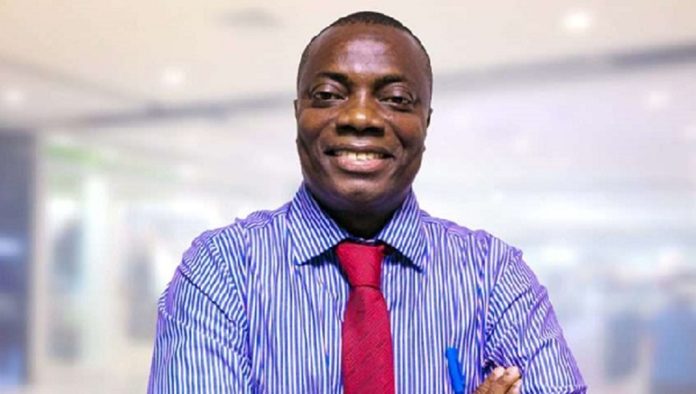The Executive Director of Global Info Analytics, Mussa Dankwa, has urged the New Patriotic Party (NPP) to urgently reorganise its internal structures and rebuild public trust, warning that the party is suffering from declining public affiliation and brand damage ahead of the 2028 general elections.
Speaking on Citi FM’s Big Issues over the weekend, Mr. Dankwa painted a sobering picture of the party’s current standing in the eyes of the electorate.
“Look, the NPP is in a very difficult situation right now. And it starts with party affiliation. On the street today, 42% of voters say they belong to the NDC, while only 27% say they are with the NPP. That’s 10 points lower than where the NPP stood in October 2024,” he revealed.
While clarifying that he was not offering campaign advice, Mr. Dankwa emphasised that the NPP brand is bruised and must undergo serious rehabilitation if it is to be competitive in the next election.
“They need to get their acts together and improve their numbers in terms of party loyalty. Otherwise, it’s going to be tough for them.
“The head-to-head matchups reflect this reality, and it’s partly due to the public’s perception of the NPP’s performance in the last administration,” he said.
Bawumia’s Candidature and Challenges
Addressing the flagbearer race within the NPP, Mussa Dankwa said their internal data shows Dr. Mahamudu Bawumia is still leading among party delegates, mirroring the outcome of the NPP presidential primaries held on November 4, 2023 at the Accra Sports Stadium.
However, he cautioned that Bawumia is weighed down by the baggage of the Akufo-Addo administration.
“What’s not going for him is the outcome of the last election. The defeat was humbling and now, he’s carrying the baggage of the Nana Addo administration, and the pain of policies like the Domestic Debt Exchange Programme (DDEP). People are still hurt,” he stated.
Mussa Dankwa also referenced how Kenyan President William Ruto distinguished himself from his boss during his campaign, suggesting that Bawumia’s loyalty and silence during controversial moments may have backfired.
“It’s the price he paid for keeping quiet. You can’t eat your cake and have it. If I were him, I’d have found a way to differentiate myself. Now he is paying the price for being too loyal.”
The Religious Factor
Mr. Dankwah also addressed the impact of religion on Bawumia’s candidacy, noting that while Ghana is not known for religious polarization, the religious identity of the Vice President was still a factor for some voters.
“We don’t really have religious tension in this country. But trying to suggest that you’ve bridged a gap implies there was a problem in the first place. That was misread and misunderstood by some voters.”
He cited polling data that showed about 10% of voters consider religion an important factor in their decision-making. In a tight election, this group could be decisive.
“With 18.5 million registered voters, 10% means 1.8 million people. That’s significant in a closely contested election.”
Mussa explained that while Orthodox Christian denominations such as the Catholics, Methodists, Presbyterians, and Anglicans are more liberal and welcoming of Bawumia’s candidacy, the Pentecostal and Charismatic communities appear more resistant.
“The Orthodox churches are more liberal. But the Pentecostals and Charismatics? They’re the challenge. That’s the reality. And many of them are anti-Bawumia, within the NPP itself.”
Call to Action for NPP
Mussa Dankwa concluded by stating that data must guide political strategy, not wishful thinking.
“We can pretend to be ostriches in this country, but the data doesn’t lie. The NPP must face the facts.
“If they don’t address these issues – declining affiliation, baggage from the last administration, and religious perception – the road ahead will be very tough.”









